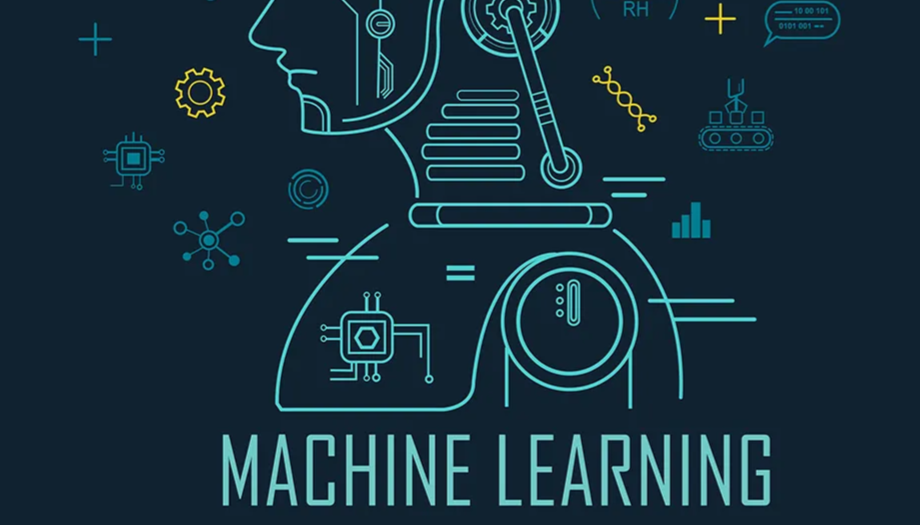Course Description
This course is tailored for individuals starting their journey in the realm of machine learning, irrespective of their prior experience. It serves as a comprehensive, up-to-date, and practical guide, efficiently delivering the knowledge you need to become proficient in machine learning without unnecessary detours.
Whether you're a novice with no background in machine learning, a software developer looking to enhance your understanding of this rapidly evolving field, or a creative mind intrigued by the possibilities of machine learning, this course takes you step-by-step through the essential skills required to master machine learning. Rooted in a pragmatic approach, the course combines theoretical underpinnings with hands-on applications, catering to both beginners and experienced learners.
Prerequisites:
No prior knowledge of machine learning is required. This course welcomes individuals without programming experience.
What You Will Learn:
MODULE 1: Machine Learning Basics
In this foundational module, your instructor introduces you to the fundamental principles of machine learning. You'll embark on a journey that unravels key concepts, such as supervised and unsupervised learning, data preprocessing, feature engineering, and the underpinning mathematical foundations. With comprehensive lessons and practical exercises, you'll develop a robust foundation for machine learning.
Key skills: Supervised learning, Unsupervised learning, Data preprocessing, Feature engineering.
Understanding Fundamentals
You'll implement code to gain insights into how machine learning algorithms function. Your instructor will guide you through this process, and your work in this module will serve as a building block for the course.
Visualization
You'll explore your code, execute it, and observe the resulting insights through a practical demonstration.
MODULE 2: Python for Machine Learning
In Module 2, you'll learn how to leverage Python for machine learning, harnessing its rich ecosystem of libraries and tools. This section explores the use of Jupyter Notebooks, NumPy, pandas, and other libraries essential for data manipulation, data visualization, and model development.
Key skills: Python for machine learning, Jupyter Notebooks, NumPy, pandas, data manipulation.
Understanding Python for Machine Learning
You will utilize your Python skills to start creating a Jupyter Notebook and implementing data manipulation tasks. Your instructor will guide you through this phase, paving the way for more advanced topics.
Visualization
By running your code in a Jupyter Notebook, you'll observe the results of data manipulation and visualization techniques.
MODULE 3: Supervised Learning
Module 3 delves into supervised learning, one of the fundamental branches of machine learning. You'll explore various algorithms, including linear regression, decision trees, and support vector machines. This module also covers crucial topics such as model evaluation, cross-validation, and hyperparameter tuning.
Key skills: Linear regression, Decision trees, Support vector machines, Model evaluation, Hyperparameter tuning.
Understanding Supervised Learning
You'll put your skills into practice by implementing supervised learning algorithms and evaluating model performance. Your instructor will guide you throughout this process.
Transition
This phase provides an opportunity to test your supervised learning models on real-world data, paving the way for more advanced machine learning concepts.
MODULE 4: Unsupervised Learning
Module 4 focuses on unsupervised learning, opening the doors to clustering and dimensionality reduction. You'll delve into k-means clustering, hierarchical clustering, and principal component analysis (PCA). Furthermore, you'll learn to identify patterns and extract meaningful insights from unlabeled data.
Key skills: K-means clustering, Hierarchical clustering, Principal Component Analysis (PCA).
Understanding Unsupervised Learning
You'll apply your knowledge to real-world data, perform clustering and dimensionality reduction, and interpret the results. Your instructor will guide you throughout this module.
Visualization
Visualizing the outcomes of clustering and dimensionality reduction will provide you with a deeper understanding of these unsupervised learning techniques.
MODULE 5: Deep Learning and Neural Networks
In Module 5, the course delves into the fascinating world of deep learning and neural networks. You'll explore the structure and functioning of artificial neural networks, deep learning frameworks like TensorFlow and Keras, and convolutional and recurrent neural networks. This module serves as a foundation for more advanced deep learning concepts.
Key skills: Artificial neural networks, Deep learning frameworks, Convolutional Neural Networks (CNNs), Recurrent Neural Networks (RNNs).
Understanding Deep Learning and Neural Networks
You'll apply your knowledge to develop and train neural networks using deep learning frameworks. Your instructor will provide guidance as you navigate this exciting realm of machine learning.
Visualization
Visualizing the training process and performance of neural networks will provide insights into their inner workings.
MODULE 6: Natural Language Processing (NLP) and Text Analysis
Module 6 leads you into the realm of Natural Language Processing (NLP) and text analysis. You'll learn about text preprocessing, sentiment analysis, and text classification. By understanding the foundations of NLP, you'll gain the skills to work with textual data effectively.
Key skills: Text preprocessing, Sentiment analysis, Text classification.
Understanding NLP and Text Analysis
You'll put your knowledge into practice by working with textual data, performing sentiment analysis and text classification. Your instructor will provide guidance as you navigate the nuances of text analysis.
Transition
This phase offers an opportunity to explore practical applications of NLP and text analysis, including building models for real-world text data.
MODULE 7: Final Machine Learning Project
In the concluding module, you will harness the collective knowledge from Modules 1 to 6 to develop a substantial machine learning project. Whether you opt to work individually or collaborate with a peer, your instructor will guide you in applying machine learning techniques to solve real-world challenges. This project will be your showcase of skills and a testament to your proficiency in the field of machine learning.
Key skills: Machine Learning Project.
Machine Learning Certification:
Upon successful completion of this Machine Learning Fundamentals course, you will be awarded a well-recognized certification in Machine Learning. This certification attests to your competencies in machine learning, providing credibility and value to your professional profile. It is readily shareable on platforms like LinkedIn and easily verifiable online.
Who is this course for?
- Beginners with no prior machine learning experience.
- Software developers and programmers looking to expand their skill set in machine learning.
- Creatives interested in unlocking the potential of machine learning in various domains.
Meet Your Instructors:
The instructors at Maxybyte are seasoned professionals actively engaged in cutting-edge projects worldwide. Their extensive experience in both teaching and industry ensures that they offer not only expertise but also approachability and support. They are dedicated to making your learning journey smooth, enjoyable, and impactful, ultimately helping you secure a promising career in the realm of machine learning.










